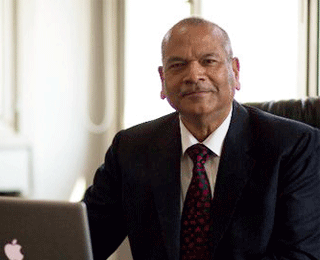Nep - The Change That Indian Education Needed

Dr. Vikam Singh, Vice Chancellor Noida International University and Ex DGP Uttar Pradesh
The national education policy 2020 is a revolutionary road map for transforming the education in the country. It is a very well thought of and very calibrated plan which envesegious the overall total spending and increase of 10 percent till the year 2030 and increase from 10 percent to 20 percent now.
There are certain grey area which have to be addressed more so in the backdrop of the horrific Corona pandemic because it has impacted every child, parent and educational institution.
The fact of the matter is that all the educational institutions are examined from GST but many of the other activities which are necessary for the students growth they are under the cover of the GST and the burden of 18 percent taxes is passed on to the student community and to the parent and guardians. This could be waved of so that in view of loss of job opportunities scaling down of wages that parents do not suffer the additional burden of the fees structure.
The Aatmanirbhar Bharat very ambitious project started by the govt of India and also which promotes to make India self reliant would also require a heavy investment, therefore the partnership and the guidance that needs to be given by ministries of social welfare and other ministries needs to be fine tuned and be given to the universities so that the empowered youth emerges and make India a truly atmanirbhar and the still force that is so very necessary for maintaining the industrial output and also GDP consequently. Indeed these are the troubled times the national education policy 2020 also envegious restructuring of the curriculum so that it become more student friendly and therefore there has to be reorientation not only of the textbook studies, but also of the classrooms and the training of teachers and all the material resources.
Under these circumstances the govt of India could perhaps think of providing a think tank so that a definite precise and a predictable model is universally applied. And the cost burden is shared by everyone alike subsidies granted per required so that the heavy expenditure expected under these circumstances would be partly shared by the govt. And partly by the concerned educational institutions.
As it is in the backdrop of the pandemic the fees have been defaulted to a very great extent the Educational institutions are in low positions to insist upon the prompt an immediate payment of fees, therefore the govt would do well to ensure that these things are heavily subsidized so that the Educational institutions are not over burdened by excessive expenditure as they are already burdened because of the lack of revenue on one hand and increasing expenditure which has not bundled during the pandemic but to the country has increase the financial burden.
Therefore, faithful implementation of the national education policy 2020 would require basic investments and those investments will have to be bond jointly by the Educational institutions and Government.
The government will have to guide us and guidance will have to be in the form of workshops and the expenditure shared by both the institutions and the Govt. alike.
This will be in national interest and truly making a student friendly experiment so that India becomes Aatmanirbhar and it is a win-win situation for one and all.
There are certain grey area which have to be addressed more so in the backdrop of the horrific Corona pandemic because it has impacted every child, parent and educational institution.
The fact of the matter is that all the educational institutions are examined from GST but many of the other activities which are necessary for the students growth they are under the cover of the GST and the burden of 18 percent taxes is passed on to the student community and to the parent and guardians. This could be waved of so that in view of loss of job opportunities scaling down of wages that parents do not suffer the additional burden of the fees structure.
The Aatmanirbhar Bharat very ambitious project started by the govt of India and also which promotes to make India self reliant would also require a heavy investment, therefore the partnership and the guidance that needs to be given by ministries of social welfare and other ministries needs to be fine tuned and be given to the universities so that the empowered youth emerges and make India a truly atmanirbhar and the still force that is so very necessary for maintaining the industrial output and also GDP consequently. Indeed these are the troubled times the national education policy 2020 also envegious restructuring of the curriculum so that it become more student friendly and therefore there has to be reorientation not only of the textbook studies, but also of the classrooms and the training of teachers and all the material resources.
Under these circumstances the govt of India could perhaps think of providing a think tank so that a definite precise and a predictable model is universally applied. And the cost burden is shared by everyone alike subsidies granted per required so that the heavy expenditure expected under these circumstances would be partly shared by the govt. And partly by the concerned educational institutions.
As it is in the backdrop of the pandemic the fees have been defaulted to a very great extent the Educational institutions are in low positions to insist upon the prompt an immediate payment of fees, therefore the govt would do well to ensure that these things are heavily subsidized so that the Educational institutions are not over burdened by excessive expenditure as they are already burdened because of the lack of revenue on one hand and increasing expenditure which has not bundled during the pandemic but to the country has increase the financial burden.
Therefore, faithful implementation of the national education policy 2020 would require basic investments and those investments will have to be bond jointly by the Educational institutions and Government.
The government will have to guide us and guidance will have to be in the form of workshops and the expenditure shared by both the institutions and the Govt. alike.
This will be in national interest and truly making a student friendly experiment so that India becomes Aatmanirbhar and it is a win-win situation for one and all.

